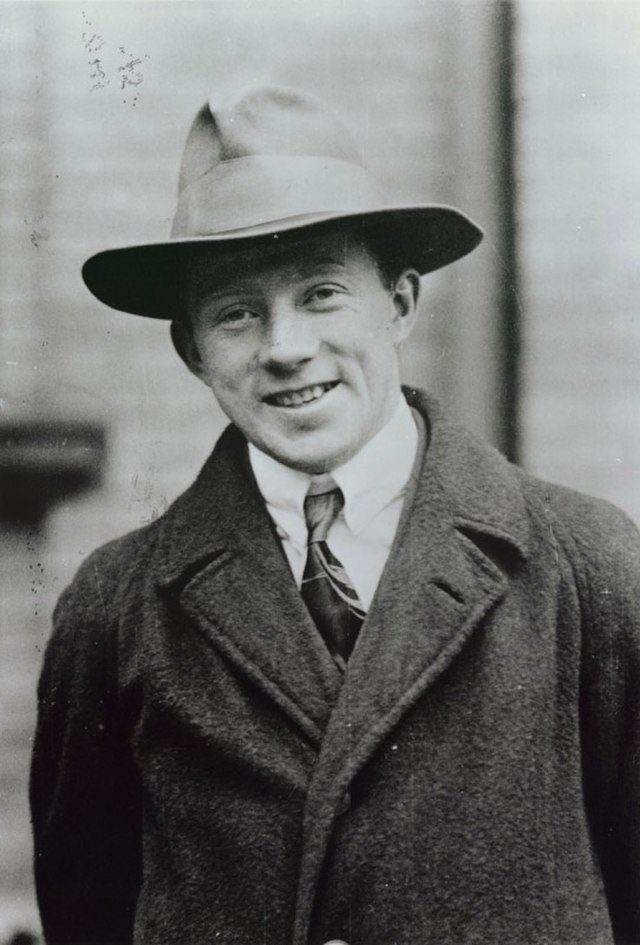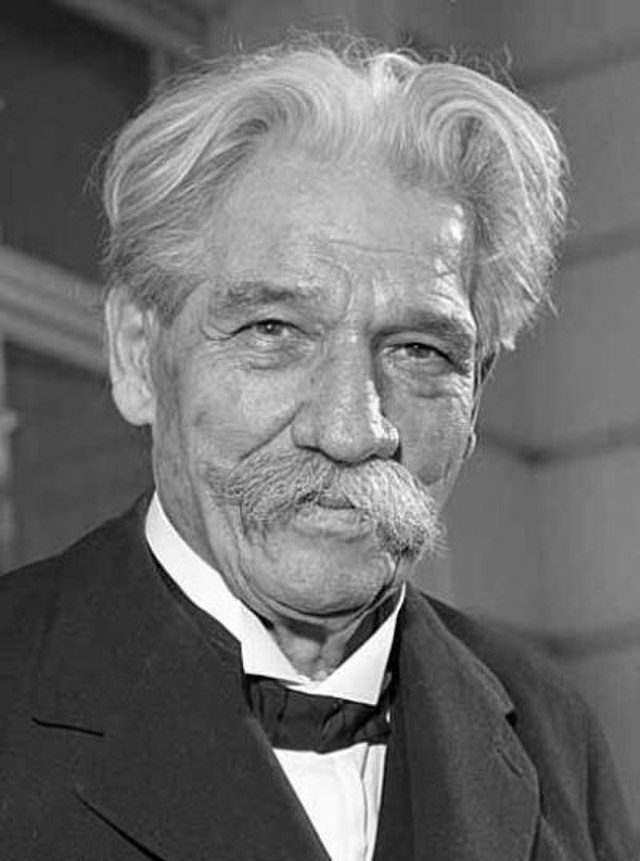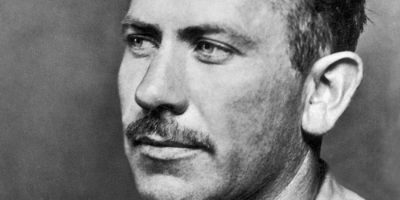
Carl Benz-by Unknown author-Wikimedia Commons
10 Most Famous German Scientists
German innovation in the fields of science and technology has long been renowned. Numerous scientists from Germany pursued their quest to learn about the universe and space, leading to some of the most significant discoveries in human and global history. Germany has earned recognition for producing significant theories, explanations, and inventions that paved the way for creating technologies, treatments, buildings, and models that made life easier and more enjoyable for people. Their scientists have significantly advanced the fields of thermodynamics, anatomy, pathology, and atomic and quantum physics, to name a few. Numerous notable scientists, like the renowned Albert Einstein, have called this nation home. Let’s look at some of the most accomplished German scientists and their contributions to the world.
Read also; 15 Brightest Scientists of All Time
1. Albert Einstein

Albert Einstein 1947-by Oren Jack Turner-Wikimedia Commons
Albert Einstein, a physicist, is perhaps the most famous German scientist and is widely regarded as one of the greatest physicists of all time for his works on the theory of relativity, although he also made significant contributions to the theory of quantum mechanics. Many people associate the word Einstein with genius. His creativity and intellectual prowess led to “Einstein” coming to represent genius. One of the man-made elements in the periodic table, Einsteinium, bears his name. His writing is also renowned for its impact on scientific thought.
2. Albert Schweitzer
Ludwig Philipp Albert Schweitzer was a physician, theologian, organist, musicologist, writer, humanitarian, and philosopher. Schweitzer, a Lutheran minister, questioned both the conventional Christian perspective of Jesus and the secular one as presented by the historical-critical methodology of the day. Paul’s mysticism of “being in Christ” has a significant part in his contributions to the interpretation of Pauline Christianity, while the idea of justification by faith plays a minor one. His “Reverence for Life” credo, which he exemplified in numerous ways but perhaps most notably by constructing and maintaining the Albert Schweitzer Hospital in Lambaréné, presently in Gabon, west central Africa, earned him the 1952 Nobel Peace Prize.
3. Carl Friedrich Gauss

Carl Friedrich Gauss-by Gottlieb Bierman-Wikimedia Commons
Carl Friedrich Gauss, a German mathematician, and physicist is remembered for his contributions to mathematics and science. Gauss, who has been dubbed “the greatest mathematician since antiquity” and the Princeps mathematicorum (Latin for “the foremost of mathematicians,” respectively), had a remarkable impact on many branches of mathematics and science. He had demonstrated his brilliance since childhood and had mastered Disquisitiones Arithmeticae by the age of 21.
4. Adolf Butenandt
Adolf Friedrich Johann Butenandt (24 March 1903 – 18 January 1995) was a biochemist from Germany. Butenandt deserves credit for expanding our understanding of gender hormones. In 1939, he was awarded the Nobel Prize in Chemistry for his “work on sex hormones.” He first declined the prize due to government policy but received it after World War II in 1949. He was also the first to uncover the structure of the silkworm sex pheromone, bombykol, in 1959. His findings indicate that gender hormones are strongly linked to steroids. His study aided in the production of birth control pills.
5. Werner Heisenberg

Heisenberg 10-by Unknown author-Wikimedia Commons
Werner Karl Heisenberg was a German theoretical physicist and one of the key pioneers of quantum mechanics theory. In 1925, he published his findings in a key breakthrough study. During the same year, he expanded on his matrix formulation of quantum mechanics in a series of papers with Max Born and Pascual Jordan. He is best known for publishing the uncertainty principle in 1927. Heisenberg received the Nobel Prize in Physics in 1932 “for the invention of quantum mechanics.”He also made contributions to theories of turbulent flow hydrodynamics, the atomic nucleus, ferromagnetism, cosmic rays, and subatomic particles.
Read also; Top 10 Unbelievable Facts about Werner Heisenberg
6. Adolf Windaus
7. Johannes Kepler

JKepler-by August Köhler-Wikimedia Commons
Johannes Kepler was a German astronomer most known for his principles of planetary motion and his writings Astronomia nova, Harmonice Mundi, and Epitome Astronomiae Copernicanae, which he wrote during the 17th century Scientific Revolution. In addition, he made essential work in optics, constructed an improved version of the refracting (or Keplerian) telescope, and was referenced in Galileo Galilei’s telescopic discoveries.
8. Carl Benz
Carl Friedrich Benz was a German engineer and engine designer. He was the first to design a car around an internal combustion engine rather than adding an engine to an existing wagon or carriage, a significant breakthrough in the evolution of automobiles. His 1885 Benz Patent Motorcar is regarded as the first practical modern automobile and the first car to be mass-produced. In 1883, Benz formed Benz & Cie. with co-investors to commercialize a stationary two-stroke engine he had invented. Its accomplishment enabled Benz to concentrate on building a lighter engine for automobiles. Because the two-stroke engine was impractical for this purpose, Benz set to work perfecting the ignition and valve control to increase the speed of the four-stroke engine.
9. Maria Goeppert Mayer

Maria Goeppert-Mayer-by Nobel foundation-Wikimedia Commons
Maria Goeppert Mayer was a theoretical physicist of German origin who won the Nobel Prize in Physics for conceiving the nuclear shell model of the atomic nucleus. Mayer and Hans Jensen created a model in 1949 in which nucleons were dispersed in shells of varying energy levels. The concept reflected observations of how nucleons spun about their own axes and around the nucleus’s core.
10. Fritz Haber
Fritz Haber was awarded the Nobel Prize in chemistry for his work in creating a way of synthesizing ammonia from nitrogen in the air. This process enabled the manufacturing of fertilizer in proportions that changed agriculture worldwide. He was also dubbed the “Father of Chemical Warfare” for his efforts in directing a team of chemists on the front lines of World War I.
Read also; Top 10 Amazing Facts about Fritz Haber
Germany is the most prolific producer of high-quality research output in Europe, which includes the United Kingdom and Switzerland in the Nature Index. 37 Nobel Prizes in Physics, 38 in Chemistry, and 30 in Medicine have been awarded to German-speaking academics. After the United States and China, it is rated third in the globe.
Planning a trip to Paris ? Get ready !
These are Amazon’s best-selling travel products that you may need for coming to Paris.
Bookstore
- The best travel book : Rick Steves – Paris 2023 – Learn more here
- Fodor’s Paris 2024 – Learn more here
Travel Gear
- Venture Pal Lightweight Backpack – Learn more here
- Samsonite Winfield 2 28″ Luggage – Learn more here
- Swig Savvy’s Stainless Steel Insulated Water Bottle – Learn more here
Check Amazon’s best-seller list for the most popular travel accessories. We sometimes read this list just to find out what new travel products people are buying.










